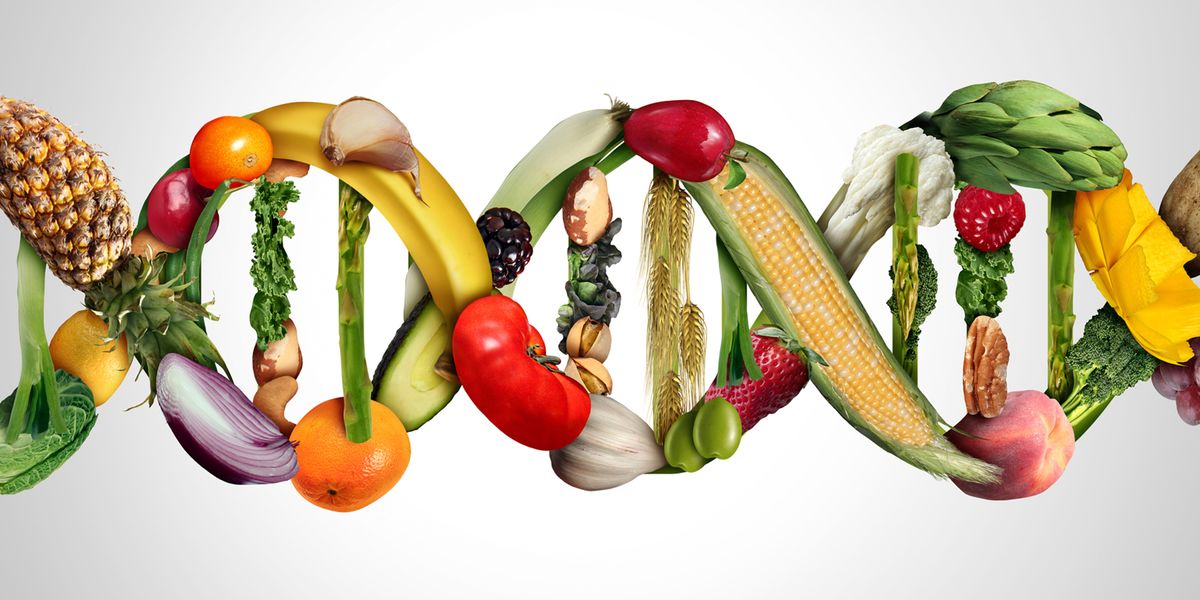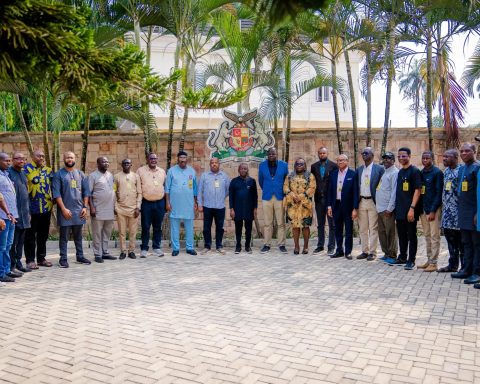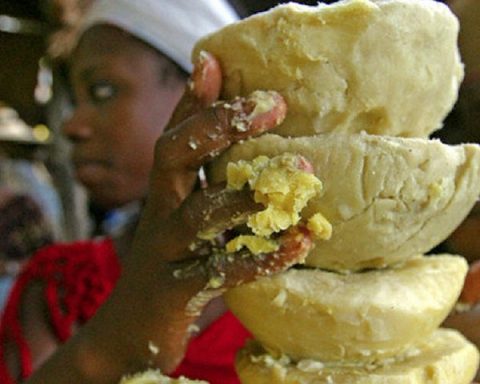Few scientific innovations have polarized public opinion like genetically modified organisms (GMOs). Since the 1990s, genetically engineered crops have been pitched as the silver bullet against hunger: crops that resist pests, survive droughts, and boost yields in regions struggling with food insecurity. Today, over 70% of processed foods in the United States contain GMO ingredients, while countries in the European Union remain fiercely restrictive.
At the center of the push are biotech giants like Monsanto (now Bayer), Syngenta, and Corteva, alongside philanthropic powerhouses such as the Bill & Melinda Gates Foundation. Their argument is simple: climate change and population growth demand innovation, and GM crops are a proven pathway.
Join our WhatsApp ChannelBut behind the promise lies a darker critique. Opponents argue that GMOs shift control of food systems from farmers and governments to a handful of corporations. Patented seeds that cannot be replanted, rising costs of farming inputs, and ecological risks from monoculture practices raise fears that the solution may deepen the very crises it claims to solve.
The Motives Behind GMO Power
Why do powerful players push GMOs so hard? Analysts point to three overlapping motives:
- Market dominance: Seed and agrochemical companies profit from patented traits, forcing farmers into annual purchases.
- Geopolitical leverage: By tying developing nations’ food production to foreign-owned technologies, biotech becomes a tool of influence.
- Philanthro-capitalism: Foundations like Gates’ frame GMOs as humanitarian aid, but critics argue it’s a way of engineering dependence under the guise of development.
It is this mix of science, commerce, and politics that makes the GMO debate so combustible and why Nigeria, Africa’s largest economy, finds itself at a crossroads.
Nigeria at the Crossroads
For Nigeria, genetically modified crops arrive at a moment of deep agricultural fragility. Rising insecurity has chased farmers from their fields, food inflation continues to soar, and post-harvest losses swallow up nearly 40% of yields. The government’s partnerships with international research institutions promise a lifeline drought-tolerant maize, pest-resistant cowpea, and vitamin-enhanced cassava.
Supporters argue these crops could stabilize production and reduce reliance on costly imports. But detractors see something more ominous: the quiet erosion of Nigeria’s food sovereignty, with farmers locked into seed contracts and the state exposed to foreign manipulation.
That tension exploded into public view late last month when two high-profile Nigerian medical practitioners clashed over GMOs.
Dr. Ify Aniebo Rhodes-Vivour vs. Aproko Doctor
On one side stands Dr. Ify Aniebo Rhodes-Vivour, an associate professor of genomics, malaria researcher, and recipient of a $1 million Gates Foundation award. Despite her benefactor, she has emerged as one of Nigeria’s fiercest GMO critics. At a public hearing on the National Biosafety Management Agency Act (2015), she warned lawmakers:
“Nigeria should not even have a conversation about embracing GMO in the first place.”
Her stance warns of sovereignty loss and irreversible dependency on foreign-controlled seed systems.
On the other side is Aproko Doctor, a digital health influencer with millions of followers. Also a Gates-linked beneficiary through donor-supported advocacy, he insists GMOs are safe to eat and necessary to tackle hunger. In a video to his followers, he stated:
“GMO foods do not cause cancer, there is no scientific study as of today that has linked GMO to cancer. ”
His argument reflects the broader global scientific consensus, that approved GMOs are as safe as conventional crops.
Their dispute has played out in fiery threads and viral debates, symbolizing the larger tug-of-war in Nigerian society:
One vision sees GMOs as a Trojan horse, a backdoor to corporate colonization of Nigeria’s food system.
The other frames biotechnology as a pragmatic tool, one Nigeria cannot afford to reject as food insecurity worsens.
The personal nature of the clash critics branding Aproko Doctor a “sellout,” supporters dismissing Dr. Ify as alarmist exposes the mistrust at the heart of Nigeria’s regulatory landscape.
The Sovereignty Question
The stakes go beyond yields. Monsanto’s history of selling “terminator seeds” engineered not to reproduce fuels fears that Nigerian farmers could lose the age-old right to save seed. In that scenario, every planting season becomes an import bill. Every harvest, a balance sheet tied to debt.
Dr. Ify Aniebo Rhodes-Vivour warns:
“GMOs will create dependency, which will make it impossible for Nigeria to attain sovereignty. He who feeds you, controls you.”
Critics warn this path would leave Nigeria perpetually vulnerable: dependent on foreign seed companies, indebted to international lenders, and exposed to trade pressures that compromise sovereignty.
READ ALSO: NAFDAC Alerts Public To Counterfeit Batches of Postinor-2 in Circulation
NAFDAC Declares Genetically Modified Foods Safe, Mandates Clear Labelling For All GM Products
Science vs. The System
What complicates Nigeria’s GMO debate is that the science and the system tell different stories.
On the science: the World Health Organization, U.S. National Academy of Sciences, and European Food Safety Authority all affirm that currently approved GM foods are as safe to eat as conventional crops. Nigerian regulators echo this stance.
Prof. Abdullahi Mustapha, DG of the National Biotechnology Research and Development Agency (NBRDA):
“Science is not hearsay but factual. GMO is safe; we have the National Biosafety Management Agency (NBMA) that controls these GMOs in Nigeria right from the start of research to the final point.”
Prof. Mojisola Adeyeye, DG of NAFDAC:
“Genetically modified organisms are not bad for us. What is important is proper labelling and strict regulation to ensure that these foods meet safety and quality standards.”
Dr. Rose Gidado, Agricultural Biotechnology head at NBRDA:
“We cannot give poison to our own people. The genetically modified beans are what we eat in my house, and there is no side effect.”
On the system: critics point to corporate monopolies, aggressive patent enforcement, and weak regulatory institutions.
Prof. Chris Qrisstuberg Amua of CEFSAR:
“Evidence suggests a correlation between the rise in GMOs and glyphosate use with an increase in specific health problems such as gastrointestinal disorders, obesity, diabetes, cancer, and Alzheimer’s disease.”
Dr. Segun Adebayo of the Centre for African Policy Research & Advisory:
“GMOs are not merely an agricultural issue; they are a security issue. The careless approval of GMOs without comprehensive risk assessments opens the door for agricultural sabotage.”
Nnimmo Bassey, HOMEF:
“It is unacceptable that in the name of food sufficiency, the country is exposing its citizens to products of risky technologies without adequate, independent and long-term assessment on their impacts on human and environmental health.”
Thus, the debate is not simply about whether GM foods are safe to eat it is about whether Nigeria can trust its institutions to regulate them fairly and independently.
What the Future Holds
Nigeria is not alone in facing this dilemma. Across Africa, governments are split. South Africa is a major adopter of GM maize and cotton. Tanzania and Zambia have resisted, citing sovereignty and ecological concerns. Kenya reversed a GMO ban in 2022 but has since faced legal challenges.
For Nigeria, the decision cannot be delayed much longer. With climate change biting and a population projected to hit 400 million by 2050, food insecurity looms large. Yet, every step toward GMOs will demand careful answers:
- Who controls the seeds?
- What safeguards exist for farmers?
- How will Nigeria balance biotechnology with indigenous farming knowledge and biodiversity?
More Than a Science Debate
Ultimately, Nigeria’s GMO debate is less about molecular biology than about trust. Do Nigerians trust that the science is independent of corporate influence? Do they trust lawmakers to resist lobbying? And do they trust that GMOs will truly benefit farmers rather than multinational shareholders?
For now, the battle lines remain drawn. One camp sees GMOs as a lifeline for a food-insecure nation; the other views them as an existential threat to sovereignty.
As the arguments rage, one truth persists: what Nigeria decides today will shape not only what grows in its soil but also who controls its future.
GMOs are not just a question of what we eat; they are a question of who controls our farms, our economy, and our destiny. If Nigeria embraces them blindly, we risk trading food sovereignty for dependency, and resilience for debt. This is more than a food fight, it is a battle over who feeds Nigeria tomorrow: Nigerians themselves, or the corporations that sell them seeds.
Amanze Chinonye is a Staff Correspondent at Prime Business Africa, a rising star in the literary world, weaving captivating stories that transport readers to the vibrant landscapes of Nigeria and the rest of Africa. With a unique voice that blends with the newspaper's tradition and style, Chinonye's writing is a masterful exploration of the human condition, delving into themes of identity, culture, and social justice. Through her words, Chinonye paints vivid portraits of everyday African life, from the bustling markets of Nigeria's Lagos to the quiet villages of South Africa's countryside . With a keen eye for detail and a deep understanding of the complexities of Nigerian society, Chinonye's writing is both a testament to the country's rich cultural heritage and a powerful call to action for a brighter future. As a writer, Chinonye is a true storyteller, using her dexterity to educate, inspire, and uplift readers around the world.
- Amanze Chinonye
- Amanze Chinonye
- Amanze Chinonye
- Amanze Chinonye
- Amanze Chinonye
- Amanze Chinonye
- Amanze Chinonye
- Amanze Chinonye
- Amanze Chinonye
- Amanze Chinonye
- Amanze Chinonye
- Amanze Chinonye
- Amanze Chinonye
- Amanze Chinonye
- Amanze Chinonye
- Amanze Chinonye
- Amanze Chinonye
- Amanze Chinonye
- Amanze Chinonye
- Amanze Chinonye
- Amanze Chinonye
- Amanze Chinonye
- Amanze Chinonye
- Amanze Chinonye
- Amanze Chinonye
- Amanze Chinonye
- Amanze Chinonye
- Amanze Chinonye
- Amanze Chinonye
- Amanze Chinonye
- Amanze Chinonye
- Amanze Chinonye
- Amanze Chinonye
- Amanze Chinonye
- Amanze Chinonye
- Amanze Chinonye
- Amanze Chinonye
- Amanze Chinonye
- Amanze Chinonye
- Amanze Chinonye
- Amanze Chinonye
- Amanze Chinonye
- Amanze Chinonye
- Amanze Chinonye
- Amanze Chinonye
- Amanze Chinonye
- Amanze Chinonye
- Amanze Chinonye
- Amanze Chinonye
- Amanze Chinonye
- Amanze Chinonye
- Amanze Chinonye
- Amanze Chinonye
- Amanze Chinonye
- Amanze Chinonye
- Amanze Chinonye
- Amanze Chinonye
- Amanze Chinonye
- Amanze Chinonye
- Amanze Chinonye
- Amanze Chinonye
- Amanze Chinonye
- Amanze Chinonye
- Amanze Chinonye
- Amanze Chinonye
- Amanze Chinonye
- Amanze Chinonye
- Amanze Chinonye
- Amanze Chinonye
- Amanze Chinonye
- Amanze Chinonye
- Amanze Chinonye
- Amanze Chinonye
- Amanze Chinonye
- Amanze Chinonye
- Amanze Chinonye
- Amanze Chinonye
- Amanze Chinonye
- Amanze Chinonye
- Amanze Chinonye
- Amanze Chinonye
- Amanze Chinonye
- Amanze Chinonye
- Amanze Chinonye
- Amanze Chinonye
- Amanze Chinonye
- Amanze Chinonye
- Amanze Chinonye
- Amanze Chinonye
- Amanze Chinonye
- Amanze Chinonye
- Amanze Chinonye
- Amanze Chinonye
- Amanze Chinonye
- Amanze Chinonye
- Amanze Chinonye
- Amanze Chinonye
- Amanze Chinonye
- Amanze Chinonye
- Amanze Chinonye
- Amanze Chinonye
- Amanze Chinonye
- Amanze Chinonye
- Amanze Chinonye
- Amanze Chinonye
- Amanze Chinonye
- Amanze Chinonye
- Amanze Chinonye
- Amanze Chinonye
- Amanze Chinonye
- Amanze Chinonye
- Amanze Chinonye
- Amanze Chinonye
- Amanze Chinonye
- Amanze Chinonye
- Amanze Chinonye
- Amanze Chinonye
- Amanze Chinonye
- Amanze Chinonye
- Amanze Chinonye
- Amanze Chinonye
- Amanze Chinonye
- Amanze Chinonye
- Amanze Chinonye
- Amanze Chinonye
- Amanze Chinonye
- Amanze Chinonye
- Amanze Chinonye
- Amanze Chinonye
- Amanze Chinonye
- Amanze Chinonye
- Amanze Chinonye
- Amanze Chinonye
- Amanze Chinonye
- Amanze Chinonye
- Amanze Chinonye
- Amanze Chinonye
- Amanze Chinonye
- Amanze Chinonye
- Amanze Chinonye
- Amanze Chinonye












